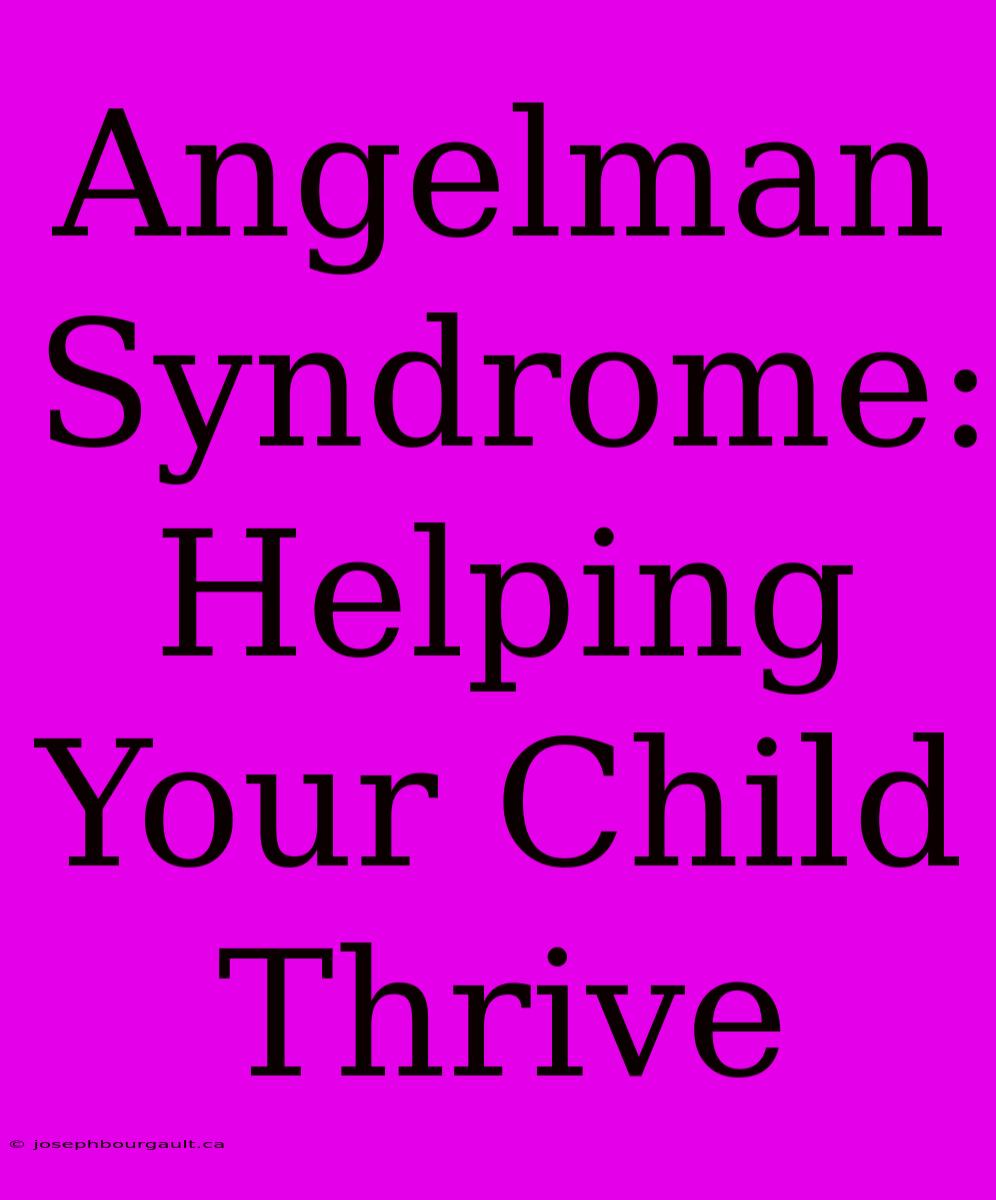Angelman Syndrome: Helping Your Child Thrive
Angelman syndrome is a rare genetic disorder that affects the nervous system, causing developmental delays, intellectual disability, and distinctive physical features. While there's no cure for Angelman syndrome, there are many ways to support your child's development and help them thrive. This article will explore the challenges and joys of raising a child with Angelman syndrome, providing practical tips and resources to empower parents and caregivers.
Understanding Angelman Syndrome:
Angelman syndrome is caused by a deletion or disruption of a gene called UBE3A, located on chromosome 15. This gene plays a crucial role in brain development, particularly in the areas responsible for motor control, communication, and learning.
Key characteristics of Angelman syndrome include:
- Severe intellectual disability: Individuals with Angelman syndrome often have difficulty with language development and learning new skills.
- Developmental delays: They may achieve milestones, such as walking and talking, later than typically developing children.
- Characteristic facial features: These may include a wide mouth, protruding tongue, and a happy, smiling expression.
- Movement and balance issues: Individuals may have trouble with coordination, balance, and walking.
- Seizures: Seizures are common in Angelman syndrome and can be treated with medications.
- Happy, excitable personality: Despite their challenges, individuals with Angelman syndrome often have a sunny disposition and a love for social interaction.
Supporting Your Child's Development:
1. Early Intervention: Early intervention is crucial for children with Angelman syndrome. It can help maximize their potential and address developmental delays. Services may include speech therapy, physical therapy, occupational therapy, and behavioral therapy.
2. Educational Support: Individuals with Angelman syndrome often require specialized education programs. These programs may focus on individual needs, using visual aids, hands-on learning, and alternative communication methods.
3. Medical Management: Regular check-ups and medical management are essential. This includes managing seizures, addressing sleep issues, and addressing any other health concerns.
4. Therapies and Treatments: There is no one-size-fits-all approach to therapy. A team of specialists can help determine the best therapies for your child's needs, which may include:
- Speech and language therapy: To improve communication skills and develop alternative communication methods.
- Physical and occupational therapy: To enhance motor skills and improve coordination.
- Behavioral therapy: To address challenging behaviors and promote adaptive skills.
5. Community and Support Groups: Connecting with other families facing Angelman syndrome is invaluable. Support groups provide a sense of community, share information, and offer emotional support.
Embracing the Joys:
Raising a child with Angelman syndrome comes with unique challenges, but it is also filled with joy and love.
- Embrace their individuality: Celebrate your child's strengths and unique personality.
- Focus on their abilities: Encourage their interests and skills, creating opportunities for success and growth.
- Enjoy their zest for life: Their happy, excitable nature can bring sunshine to any day.
Resources:
- The Angelman Syndrome Foundation: https://www.angelman.org/
- National Angelman Syndrome Foundation: https://www.nasf.org/
- Angelman Syndrome UK: https://www.angelman.org.uk/
Living with Angelman syndrome presents its own set of challenges, but with the right support, your child can live a fulfilling life. Remember, your child is unique and capable of achieving amazing things. Embrace their strengths, advocate for their needs, and celebrate the joy they bring to your life.

